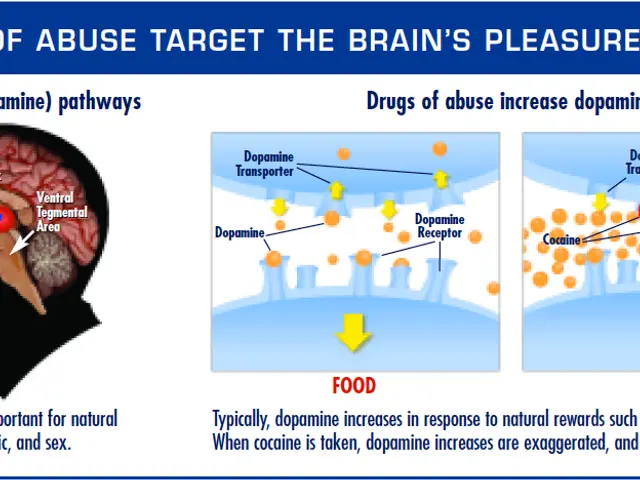Benefits and Drawbacks of Consuming Oats: A Comprehensive Overview
Oats, a versatile and popular cereal, have gained recognition as a nutritious food option due to their rich nutrient profile and numerous health benefits. This humble grain is packed with high-quality plant-based protein, vitamins, minerals, and antioxidants, making it a staple recommended by nutrition experts.
One of the key health advantages of oats is their impact on heart health. The soluble fiber in oats, particularly beta-glucan, has been shown to reduce LDL (bad) cholesterol by forming a gel in the gut that binds cholesterol particles. This effect helps reduce the risk of cardiovascular disease. Studies have linked eating whole grain oats daily with a significantly lower risk of heart failure.
Oats also play a crucial role in blood sugar regulation. Beta-glucan helps stabilize blood sugar levels, which is beneficial for people with diabetes or prediabetes. The slow-release carbohydrates in oats contribute to balanced glucose absorption, supporting metabolic health and reducing insulin spikes when properly combined with protein or healthy fats.
In terms of digestive health, oats contain both soluble and insoluble fiber, which help maintain gut health by promoting regular bowel movements and preventing constipation. This supports a healthy digestive system and gut environment. The fiber content in oats also promotes feelings of fullness, which can reduce overall calorie intake and aid weight loss or maintenance efforts.
However, it's important to note that some individuals may experience digestive discomfort when consuming oats, especially if their fiber intake is suddenly increased. Oats also contain phytic acid, an antinutrient that can impair the absorption of minerals like iron and zinc. Soaking or cooking oats can reduce phytic acid levels to minimize this effect.
Rare cases of oat allergies exist, and people with celiac disease or gluten sensitivity should be cautious or monitor their intake of oats, as they may contain traces of wheat, barley, or rye during processing. Avenin, a protein similar to gluten in oats, is difficult to digest for people with intolerance.
In conclusion, oats offer significant health benefits including heart health, blood sugar control, digestive support, and weight management when consumed in moderation and as part of a balanced diet. However, individuals with digestive sensitivities, mineral absorption concerns, or rare oat allergies should monitor their intake accordingly. Combining oats with protein or healthy fats can optimize their blood sugar regulation effects.
Oats can be used in a variety of dishes, making them a convenient and adaptable food choice. A cup of oats provides approximately 1.8 grams of vitamin B1, essential for nerve signal conduction and energy conversion. The Spanish Heart Foundation reports that oats have properties that are beneficial for heart health, and folic acid in oats promotes maternal tissue growth during pregnancy.
[1] Nutrition and Health, 2021 [2] Harvard T.H. Chan School of Public Health, 2020 [3] American Heart Association, 2021 [4] British Nutrition Foundation, 2021
Embracing oats as part of a balanced lifestyle can contribute to overall health-and-wellness, given their advantages in heart health, blood sugar regulation, and digestive support. Science has shown that the soluble fiber in oats, especially beta-glucan, aids in maintaining healthy cholesterol levels and reducing the risk of cardiovascular disease. Furthermore, oats' nutrient-rich profile, including essential vitamins like Vitamin B1, offers benefits for nerve function and energy production, aligning with the principles of nutrition.







